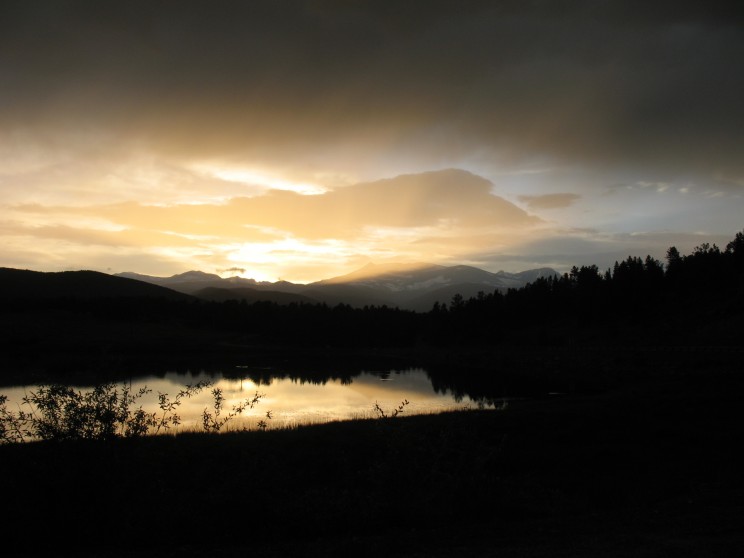By Linda Mercadante, Ph.D.
Many religious people think—or hope—that all those who self-identify as “spiritual but not religious” (SBNR) are “seekers” looking for a spiritual home. And many non-religious people assume that SBNRs are routinely hostile to religion and probably have been hurt by it. In fact, after speaking with hundreds of SBNRs all across North America over a five-year period, I have found neither of these assumptions to be accurate or widely representative.

Photo courtesy of the author.
Instead, I have found my interviewees falling into five types. I spoke with adults from many generations and found that the types cut across all age groups. While I found that people sometimes moved from one type to another, many others stayed put. Having a set of categories like these helps us better understand this rapidly growing segment of the United States.
Here are the five types I found:
Dissenters: Dissenters largely stay away from institutional religion, whether from bad experiences or, more often, theological differences. Many of these had a religious background and either protested or simply drifted away from it. Against popular assumptions, however, this type made up a fairly small percentage of my total.
Casuals: For Casuals, religious and spiritual practices are generally approached on an “as-needed” basis and discarded or changed when no longer necessary. Spirituality is not felt to be the organizing center of their lives. Many of the “casuals”—especially younger ones—had little or no religious exposure either as children or adults. This type represented a very large percentage of my total.
Explorers: These people seem to have a spiritual “wanderlust.” Acting more like tourists, they don’t expect to settle down in any permanent spiritual home. They are different from “casuals,” however, because spirituality is a central interest for them. Thus, they are always ready to try something new. Explorers represented a modest but significant percentage and were certainly some of the more intriguing interviewees.
Seekers: Unlike the above types, these SBNRs are actually seeking a spiritual home in which to settle down. They may frequently be frustrated in the search, but they persevere. They do this because they long to belong, whether that is to God, Spirit, or a spiritually-grounded group. Against popular assumptions that every SBNR is a “seeker,” they only represented a modest percentage of the total.
Immigrants: These were interviewees who had moved to a new spiritual “land” and—like geographic immigrants—were trying to adjust, usually with some difficulty. Often they had once been “seekers.” This represented, by far, the smallest number of interviewees.
Once we understand that “spiritual but not religious” people come in different types, both religious and non-religious people will avoid the common conceptual traps that prevent us from fully seeing and appreciating this growing group. For religious people, there are two traps. First is what I call the “mea culpa” trap (“What did we do to hurt them?”). In fact, I heard very few religious “horror stories.” Clearly, religion isn’t as unilaterally repressive as some people like to think. But, in addition, fewer and fewer numbers are raised with any religious exposure at all. Thus, many interviewees had no bad experiences with religion to prevent them from considering it.
The second religious trap I call “If we build it, they will come” (“If only we fix our music, greet newcomers better, have better community, they will want to join us”). Yet for increasing numbers, religion is not a habit, but a strange world. Religious people should not expect SBNRs to show up at the sanctuary door. Instead, they will have to be encountered in other ways and places.
Non-religious people, too, need to avoid some traps. It is a mistake to assume SBNRs are generally hostile to religion. It is also misguided to assume SBNRs don’t take religious issues seriously. When I did find SBNRs who had explicit issues with organized religion, it was often a theological problem that kept them away or a sadness that, unlike others, they never quite “got it.”
Knowing the types and traps will help us take a more nuanced view towards the growing phenomenon of SBNRs. On the plus side, increasing numbers are becoming open to a variety of spiritual guides, alternatives, and even religious traditions, as they continue to nurture the spirit within. The downside, however, is that as many bring less information, heritage, or background with them on their spiritual journey, they will have to work harder to distinguish the deep spiritual wells from the shallow puddles.
Linda Mercadante is the B. Robert Straker Professor of Historical Theology at The Methodist Theological School in Ohio and is an ordained minister in the Presbyterian Church (USA). She is the author of Belief without Borders: Inside the Minds of the Spiritual but not Religious.
Subscribe to the OUPblog via email or RSS.
Subscribe to only religion articles on the OUPblog via email or RSS.
The post Spiritual but not religious: knowing the types, avoiding the traps appeared first on OUPblog.


